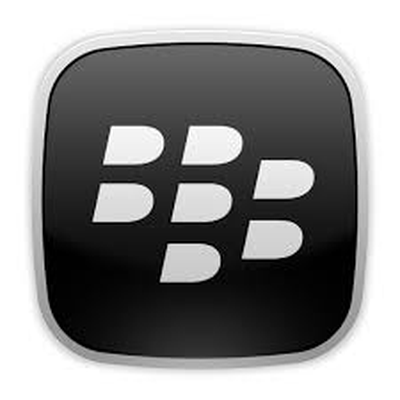BlackBerry Receives Takeover Bid Worth $4.7 Billion or $9/Share
 BlackBerry has agreed to a "letter of intent" to be acquired by Fairfax Financial, in a potential deal worth $4.7 billion or $9 per share. Fairfax currently owns 10% of BlackBerry shares.
BlackBerry has agreed to a "letter of intent" to be acquired by Fairfax Financial, in a potential deal worth $4.7 billion or $9 per share. Fairfax currently owns 10% of BlackBerry shares.
Fairfax Financial is a conglomerate holding company, somewhat like a Canadian Berkshire Hathaway. The company's primary business is insurance. Fairfax's CEO, Prem Watsa, was on the BlackBerry board of directors until he resigned from the position last month.
The deal is far from complete, with "a number of conditions" according to Bloomberg reporter Sarah Frier. The agreement includes six weeks of due diligence and, in the meantime, BlackBerry is free to look for higher bids, though Fairfax has the right to match those bids.
From The Globe and Mail:
"BlackBerry has fallen on hard times recently, but we have every confidence it will be successful again," Fairfax CEO Prem Watsa said in an interview.
[…]
Mr. Watsa said that a significant amount of the equity in the deal will come from Canada. There are no strategic players, or other technology firms, in the consortium.
"If the right strategic investor comes in we’d consider taking them as a partner in this company," Mr. Watsa said. "We’re looking at any possibility for the good of the company, its customers and its employees."
As part of a larger reorganization of the company, BlackBerry said on Friday that it would layoff 40 percent of its staff, ceasing sales of devices to consumers. The company also put the imminent release of the iOS version of BlackBerry Messenger on indefinite hold because of separate technical issues with the rollout.
BlackBerry shares had been halted because of the news, but last traded at $8.23 a share. The stock traded near $15 as recently as July.
Popular Stories
Apple's next-generation iPhone 17 Pro and iPhone 17 Pro Max are less than three months away, and there are plenty of rumors about the devices.
Apple is expected to launch the iPhone 17, iPhone 17 Air, iPhone 17 Pro, and iPhone 17 Pro Max in September this year.
Below, we recap key changes rumored for the iPhone 17 Pro models:Aluminum frame: iPhone 17 Pro models are rumored to have an...
The long wait for an Apple Watch Ultra 3 appears to be nearly over, and it is rumored to feature both satellite connectivity and 5G support.
Apple Watch Ultra's existing Night Mode
In his latest Power On newsletter, Bloomberg's Mark Gurman said that the Apple Watch Ultra 3 is on track to launch this year with "significant" new features, including satellite connectivity, which would let you...
The upcoming iPhone 17 Pro and iPhone 17 Pro Max are rumored to have a slightly different MagSafe magnet layout compared to existing iPhone models, and a leaked photo has offered a closer look at the supposed new design.
The leaker Majin Bu today shared a photo of alleged MagSafe magnet arrays for third-party iPhone 17 Pro cases. On existing iPhone models with MagSafe, the magnets form a...
iOS 26 and iPadOS 26 add a smaller yet useful Wi-Fi feature to iPhones and iPads.
As spotted by Creative Strategies analyst Max Weinbach, sign-in details for captive Wi-Fi networks are now synced across iPhones and iPads running iOS 26 and iPadOS 26. For example, while Weinbach was staying at a Hilton hotel, his iPhone prompted him to fill in Wi-Fi details from his iPad that was already...
The iPhone 17 Pro Max will feature the biggest ever battery in an iPhone, according to the Weibo leaker known as "Instant Digital."
In a new post, the leaker listed the battery capacities of the iPhone 11 Pro Max through to the iPhone 16 Pro Max, and added that the iPhone 17 Pro Max will feature a battery capacity of 5,000mAh:
iPhone 11 Pro Max: 3,969mAh
iPhone 12 Pro Max: 3,687mAh...
Apple today seeded the second betas of upcoming iOS 18.6 and iPadOS 18.6 updates to public beta testers, with the betas coming just a day after Apple provided the betas to developers. Apple has also released a second beta of macOS Sequoia 15.6.
Testers who have signed up for beta updates through Apple's beta site can download iOS 18.6 and iPadOS 18.6 from the Settings app on a compatible...
Apple is developing a MacBook with the A18 Pro chip, according to findings in backend code uncovered by MacRumors.
Subscribe to the MacRumors YouTube channel for more videos.
Earlier today, Apple analyst Ming-Chi Kuo reported that Apple is planning to launch a low-cost MacBook powered by an iPhone chip. The machine is expected to feature a 13-inch display, the A18 Pro chip, and color options...
Apple's position as the dominant force in the global true wireless stereo (TWS) earbud market is expected to continue through 2025, according to Counterpoint Research.
The forecast outlines a 3% year-over-year increase in global TWS unit shipments for 2025, signaling a transition from rapid growth to a more mature phase for the category. While Apple is set to remain the leading brand by...
 BlackBerry has agreed to a "letter of intent" to be acquired by Fairfax Financial, in a potential deal worth $4.7 billion or $9 per share. Fairfax currently owns 10% of BlackBerry shares.
BlackBerry has agreed to a "letter of intent" to be acquired by Fairfax Financial, in a potential deal worth $4.7 billion or $9 per share. Fairfax currently owns 10% of BlackBerry shares.




















